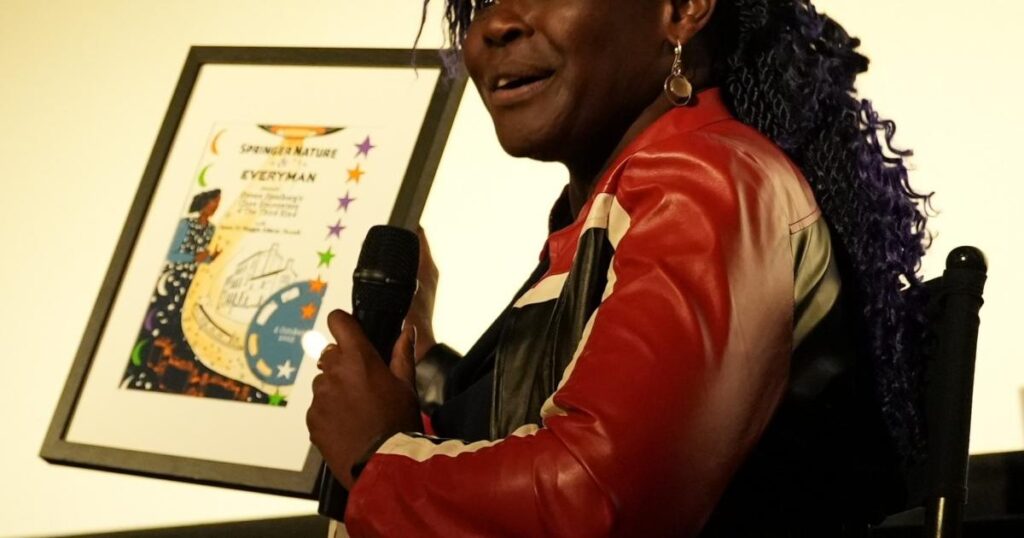It was seeing the 1977 Spielberg blockbuster Close Encounters of the Third Kind on the Big Screen that propelled the BBC star into a career as an astronomer
She told an audience of Islington children and students what motivated her when she appeared at a screening of the film at the Everyman theatre in King’s Cross.
“It’s my favourite science film,” Dame Dr Aderin-Pocock revealed. “It’s a reminder of why I fell in love with space and why I still dream of exploring it.
“I believe that ‘wonder’ is integral to good science and good storytelling, asking questions and imagining what’s possible.
“That’s why science on screen is so powerful — challenging assumptions, communicating complex ideas and inspiring audiences to explore.
“But the creativity of science is something that can often be overlooked.”
Dame Dr Aderin-Pocock spoke to Springer Nature’s global science papers chief editor Dr Magdalena Skipper on stage, in front of an audience of pupils from Elizabeth Garret Anderson school in Islington and students from New City College in Shoreditch.
Dr Skipper, who hosted the evening, said: “Researchers everywhere want to make a difference to the world around them, which is why so many do the job they do. But their discoveries can only have an impact if people can relate to them.
“Science rarely meets its full impact if it is not shared effectively. Science cinema can make a big difference.”
Showing the film was part of Springer Nature’s programme to bring science to the big screen, which started earlier this year when The Martian was chosen for the Everyman on the Canal outdoor cinema in King’s Cross.
The community programme aims to challenge perceptions about scientists and researchers and to inspire a new science-minded generation including storytelling and film-making.
The event at the Everyman follows last year’s photography exhibition of what a scientist looks like. In this case, it was Maggie Aderin-Pocock, who has gone from scientific journal papers to prime-time television presenter, helping researchers to share their work with new audiences — all inspired by Spielberg’s Close Encounters.




